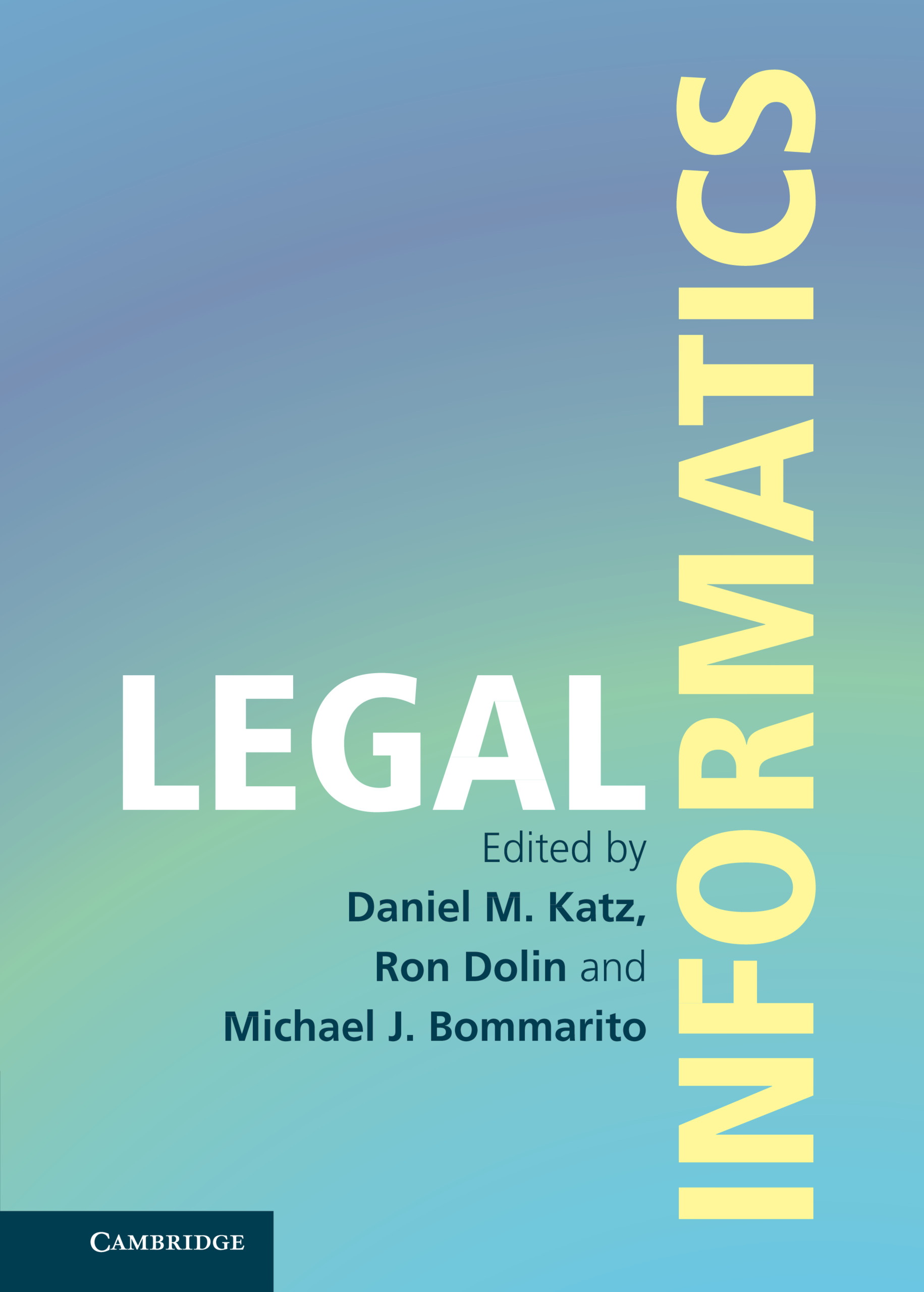Book contents
- Legal Informatics
- Legal Informatics
- Copyright page
- Contents
- Figures
- Tables
- Contributors
- Part I Introduction to Legal Informatics
- 1.1 Motivation and Rationale for this Book
- 1.2 Technology Issues in Legal Philosophy
- 1.3 The Origins and History of Legal Informatics
- Part II Legal Informatics
- Part III Use Cases in Legal Informatics
- Part IV Legal Informatics in the Industrial Context
1.3 - The Origins and History of Legal Informatics
from Part I - Introduction to Legal Informatics
Published online by Cambridge University Press: 04 February 2021
- Legal Informatics
- Legal Informatics
- Copyright page
- Contents
- Figures
- Tables
- Contributors
- Part I Introduction to Legal Informatics
- 1.1 Motivation and Rationale for this Book
- 1.2 Technology Issues in Legal Philosophy
- 1.3 The Origins and History of Legal Informatics
- Part II Legal Informatics
- Part III Use Cases in Legal Informatics
- Part IV Legal Informatics in the Industrial Context
Summary
Throughout the twentieth and early twenty-first centuries, the world witnessed exponential growth in the amount of information collected, stored, and analyzed. Not unrelatedly, the cost of storing, analyzing, and transmitting information has fallen exponentially during the same period, resulting in substantially greater access to and awareness of data. A few hundred years ago, the cost of storing the sum of written human knowledge exceeded the budgets of all but the very wealthiest institutions; today, the body of all written human knowledge can be accessed by a device that nearly half of the world’s population carries in their pocket. As a result, people have become somewhat desensitized to the purpose and presence of data in modern society. In order to understand the purpose of the data and knowledge we have accrued and stored – and which is intrinsically linked to informatics – it is useful to look back to a time when knowledge was genuinely scarce and expensive to access. To understand informatics, we must understand the importance of writing and knowledge systems through history.
- Type
- Chapter
- Information
- Legal Informatics , pp. 24 - 30Publisher: Cambridge University PressPrint publication year: 2021



